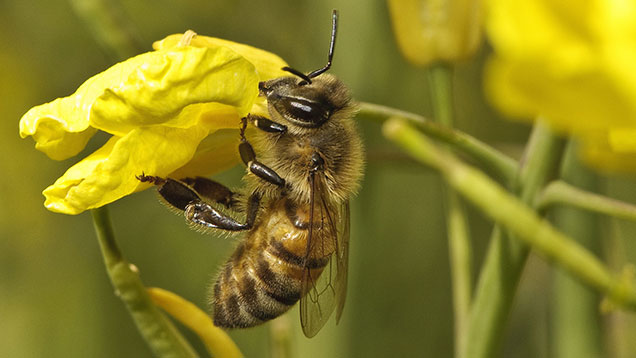Interim bee trial results to aid EU neonicotinoid decision
 © FLPA/Rex Shutterstock
© FLPA/Rex Shutterstock Full results from large-scale field experiments on the effects of neonicotinoid seed treatments on bees are not expected until late March 2016.
However, interim data is being supplied to the European Food Safety Authority (EFSA) at the end of September, as it starts to review new data before the two-year EU moratorium ends in December.
The two-year ban covers the use of clothanidin from Bayer CropScience and Syngenta’s thiamethoxam on flowering crops, such as oilseed rape and sunflowers.
See also: Neonicotinoid field studies to assess effect on bees
Speaking at a briefing in London yesterday, lead scientist Richard Pywell of the Centre for Ecology and Hydrology also revealed a peer-reviewed paper would be published in December.
“In an ideal world, we would wait for all the results to be in,” he said.
“But the two-year ban on the use of these two products comes to an end in December, so the EFSA needs to start gathering any new evidence in order to conduct its review.”
The field experiments were conducted in three European countries across 33 farms, in large crop areas of 45-70ha, and took place during the 2014-15 growing season.
They complement the laboratory and small-scale field trials done to date, some of which have shown the the seed treatments have a negative effect on bumblebees and solitary bees.
Monitoring has been carried out to look at the response of bee populations to exposure to neonicotinoids, as well as investigate any residues in nectar, pollen and hive products.
The reproductive success and overwinter survival of bees was also being assessed, he said.

